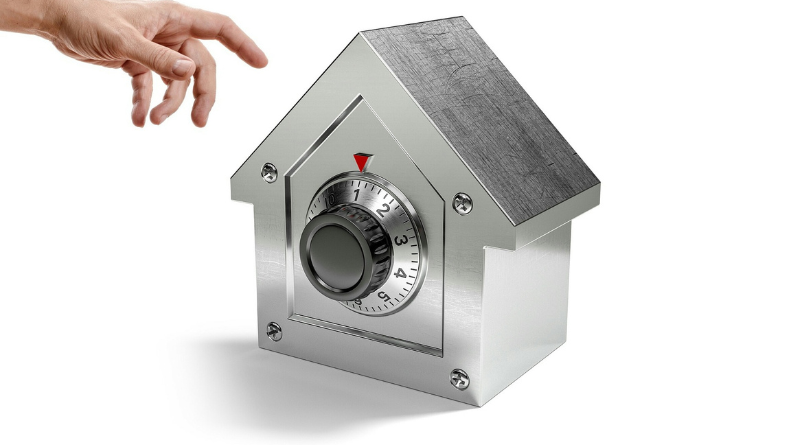Tenancy Deposit: A Guide for Landlords
In 2022, there are over 5 million people in the UK who privately rent out their properties to tenants, either as landlords or via a property management company. Which route a property owner will take depends on their investment strategy and long-term goals.
Tenants and landlords alike should be aware of what the tenants’ rights (and obligations) are to ensure a fruitful relationship.
A tenancy deposit is the most prevalent source of conflicts and judicial actions between landlords and renters. To avoid long and costly legal fights, here is a landlord’s guide to how to handle a tenant’s deposit money.
What is a tenancy deposit?
As a result of the tenant’s sending their landlord or agent a security deposit (also known as a security bond) at the beginning of their lease, the landlord or agent has an insurance policy for potential damage to the property, non-payment of rent, or, more typically, a need for professional cleaning before the property can be re-rented as a result of their poor care.
From a legal standpoint, a tenant’s deposit is their property until the time comes when the tenancy comes to an end and any deductions are made. The remaining funds, after any necessary deductions, are returned to the tenant.
For security bonds, the most common amount is equivalent to one month’s rent in cash, although, technically speaking, something like valuable jewellery can be used as a deposit. The landlords of high-end houses, however, can and do demand up to three months of rent.
What is a tenant’s deposit protection?
Landlords who rent out a home on an assured shorthold tenancy that began on or after April 6, 2007, must ensure that they place the tenancy deposit in a government-backed tenancy deposit fund. This is a legal requirement that falls under the Housing Act 2004: Chapter 4 Tenancy Deposits Schemes.
These service providers are essentially neutral third parties that ensure that the deposit money is returned to the proper party at the end of a tenant’s rental term. When the landlord (or management company) and the tenant cannot agree on the amount of the deposit to be returned, tenants can contact a TDP provider and seek an Alternative Dispute Resolution – a free service provided by the schemes when the lease has expired.

It will offer an impartial arbitrator who will investigate the dispute and request evidence from both the landlord and the disputing tenant. They’ll make an announcement as to what they have decided upon when they’ve reviewed and weighed all the submitted evidence. Before the money can be taken out of the TDP program, both the landlord and the tenant must agree or the court will rule in favour of one of them.
There are some circumstances, however, where the deposit protection schemes do not apply, such as the following:
- The tenant is classed as a lodger.
- The landlord and renter share the same residence.
- The tenant lives in a student dormitory or halls of residence.
- The landlord is a non-profit organisation, like a social landlord.
Procedure for protecting the tenant’s deposit
Within 30 days after receiving the tenant’s security deposit, a landlord must transfer the funds to one of the following three government-authorised institutions:
A Prescribed Information Order (PIO) must also be sent to all tenants during this 30-day timeframe, which includes information concerning the protection of their deposit, such as:
- The landlord’s or the landlord’s representative’s full contact information.
- Information about the security provider you used to safeguard the deposit, including their name, address, and phone number.
- The way the deposit is kept safe and the Certificate of Protection that says it is safe.
What penalties result from non-compliance?
Jamie Johnson, CEO of FJP Investment, said that “When it comes to the deposit, the law governing this is fairly rigorous. For example, landlords who do not follow the correct procedure and do not do it on time may find themselves in court. Between one and x3 the deposit amount, plus the initial deposit, might be given to the tenant as awarded compensation.” Indeed, nothing a landlord says or submits can exonerate them of the failure to comply with procedure if this happens, except for lowering the penalty charges.
The strictness and seriousness with which the law holds tenancy deposit protection can be gleaned by realising there is no connection between a deposit dispute and a tenancy dispute. No matter how far behind on their payments they’ve fallen or any damage they’ve wrought to the property, tenants are still entitled to have their deposits protected.
There are consequences for landlords who violate deposit protection procedures, which may even impair their rights over the property. For example, the loss of the right to issue a legitimate Section 21 notice and to pursue possession of the rented property on a no-fault basis. As a result, a landlord cannot simply decide to remove a renter at will. Until the issue of bonds is settled, any section 21 you serve will be void.
The importance of the inventory
For landlords, a solid, proof-based claim on the deposit has a far better probability of success. Before and after a tenant moves in or out, an inventory report records the condition of the property, which can be used as evidence. To determine if a renter has damaged the rental property, left it in a dirty state, or left extra or undesired goods inside, these two pieces of proof are crucial. They might lead to a reduction of the security deposit.
The inventory report serves as a simple checklist of the property’s contents and current condition. It’s not required, but it’s strongly encouraged that you provide images with the report for each chapter and feature of the property, especially the dubious portions like existing faults, damage, surface scars, and upholstery condition.
In summary, a landlord or their representative must ensure that they are fully versed in the legality of protecting a tenant’s deposit and make sure that they are in strict adherence to procedure.
ARE YOU READY TO START INVESTING?
Subscribe to our mailing list now for exclusive deals, investment guides and the latest information from the property market.






